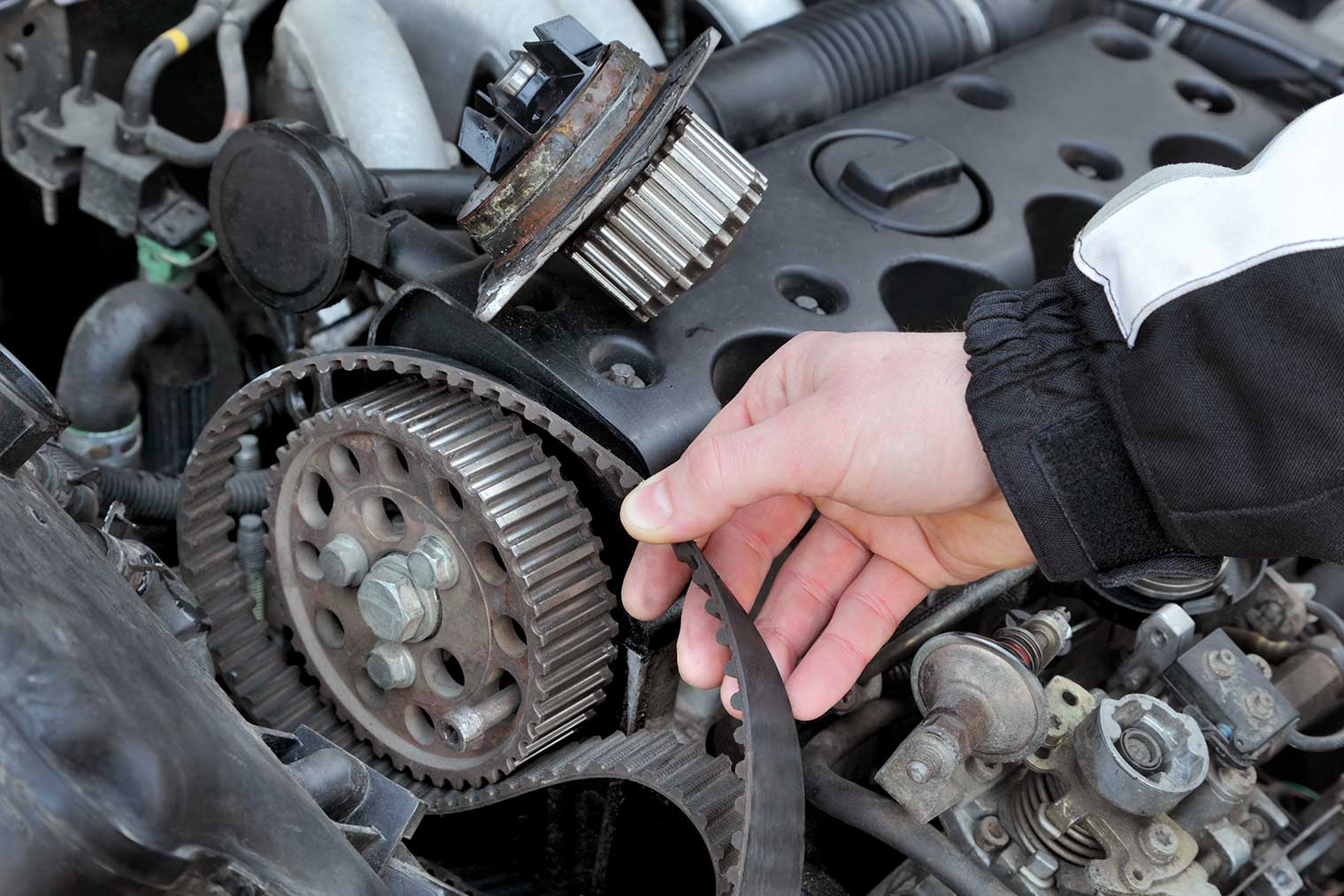Preventative Maintenance
Preventive Maintenance
With the hustle bustle of everyday life these days, the thought of vehicle maintenance has become akin to going to the dentist and often remedied with a quick oil change - if we happen to think about it and have nothing better to do. But effective preventative maintenance goes well beyond regular oil changes, much less random, infrequent ones.
With automobile prices where they are today, it might be wise to slow down and spend more time taking care of your investment - your vehicle. Preventative maintenance really can extend the life of your vehicle, and rest assured, it can't all be done in the time it takes to change the oil.
Items that need to be checked when the hood goes up should include:
The Oil: The oil should be changed in most passenger cars and light trucks every three months or 3,000 miles (6 months or 5,000 miles for some vehicles or when using full synthetic motor oil). Although the intervals can be stretched to as much as twice this under light use or when using synthetic oils, the savings are often questionable and if you are driving in the Texas heat, light use becomes a misnomer.
The Fluid Levels: Coolant, transmission fluid, power steering fluid, brake fluid, battery water and even the windshield washer fluid need attention. If low, fluid levels need to be topped off. And if unusually low, the corresponding system needs to be checked for leaks or other ailments.
The Filters: Air, fuel and crankcase breather filters need inspection as well. Don't just rely on the vehicle manufacturer's recommended service intervals. Air filters need to be inspected regularly, especially in dusty climates, and replaced as often as necessary regardless of mileage or time. Dirty air filters can increase fuel consumption and exhaust emissions.
The Tune-up: Opinions differ as to what a tune-up should include but every engine should be given as thorough a check-up as possible. For most vehicles with gasoline engines, replacing the spark plugs, fuel filter and checking various emission control components should be included in most "tune ups".
Chassis Lubrication: Most passenger cars today have sealed ball joints and tie rod ends but not all, so they should be checked. Some U-joints on rear-wheel drive vehicles are serviceable via grease fittings but CV (Constant Velocity) joints are not. For vehicles with CV axles, it is important to check the protective rubber or plastic boots around the CV joints. If damaged, they need to be replaced because they keep the grease in while keeping dirt and water out.
Engine Coolant: The Engine coolant should be inspected and replaced periodically, depending on the vehicle and the type of engine. Bi-metal engines (engines with aluminum heads and cast iron blocks for example) and those with aluminum radiators and other cooling system components are vulnerable to electrolysis corrosion if the coolant isn't replaced often enough. It is important that there is the correct amount of coolant verses water in your engine's cooling system and that the coolant is of the correct type. A misstep in this area can cause cooling system boil over and rapid evaporation in the summer or freezing of the cooling system in the winter.
The Belts and Hoses: Belts and hoses need to be checked regularly because a failure often disables a car. This is especially true of timing belts! All belts and hoses eventually must be replaced because the rubber simply deteriorates. Heat makes rubber brittle and prone to cracking with age. It is important to insure the belts are adjusted properly too. If you ever hear squealing from the engine compartment, have the belts inspected immediately. Hoses tend to soften and swell with age and heat and when they come into contact with oil based chemicals. Hoses should be inspected for swelling, cracking and splitting.
Tires and Suspension: Proper tire pressure and alignment of your vehicle’s suspension is extremely important in getting the most out of your tires.
Vehicles with alignment and/or suspension problems may among other things, handle poorly, produce uneven or excessive wear on the tires and can even be a safety hazard. If you notice your vehicle is pulling to the right or a vibration while driving, have the tires and suspension inspected immediately.
Nobody likes buying tires, and the longer they last, the better. Roadrunner Lube & Tune offers complete steering, suspension and wheel alignment services performed by our ASE certified Technicians!








